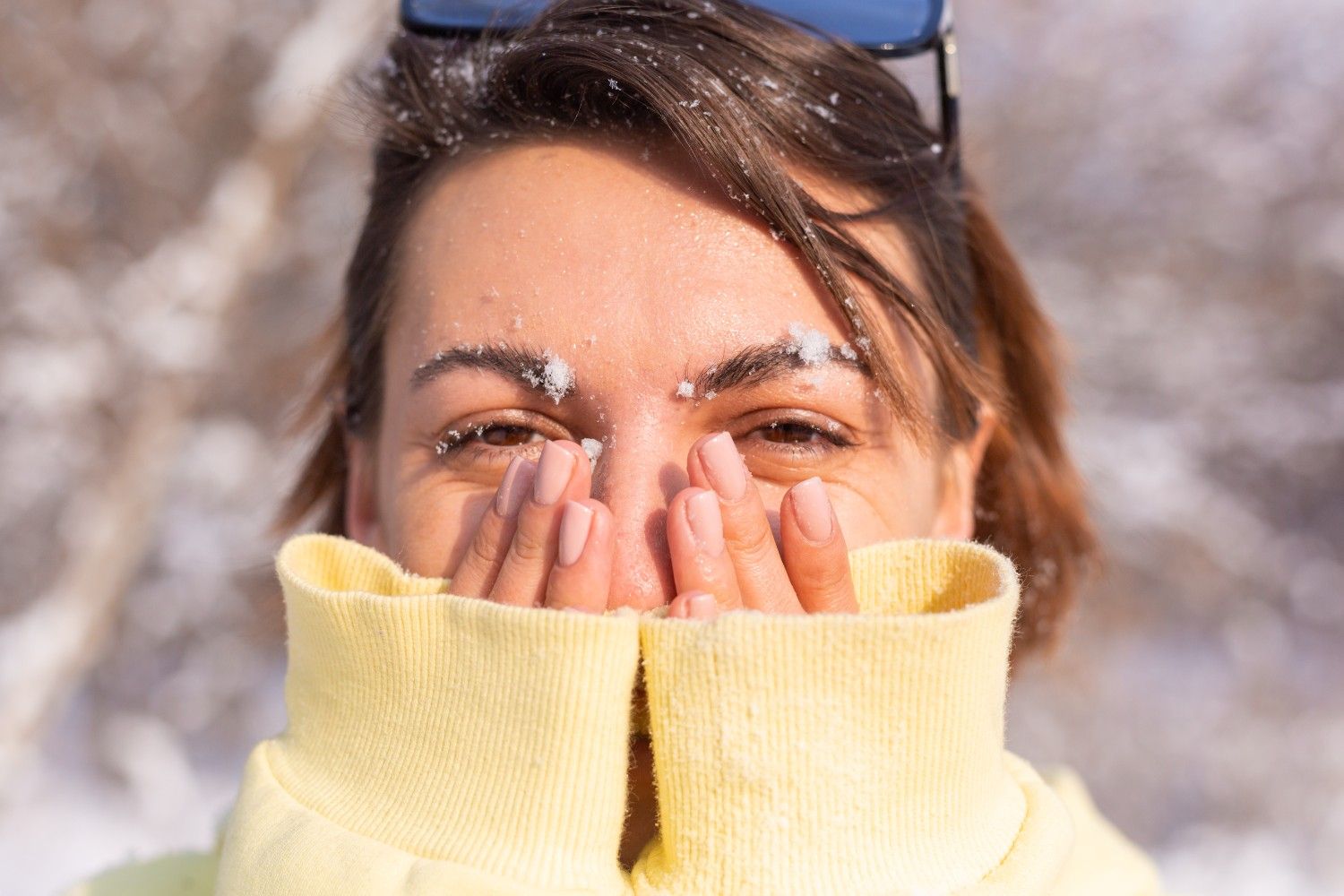The Winter Blues: How Seasonal Affective Disorder (SAD) and Eye Health Are More Connected Than You Think
When the temperature drops and the days get shorter, it’s common to feel a little off.
Many people experience lower energy, reduced motivation, and changes in mood during winter. However, what often goes unnoticed is how these seasonal changes, especially those linked to mental well-being, can also affect your eyes and vision.This winter, let’s look at eye health through a new lens: the mind-body connection.

Less Sunlight = Mood Shifts + Screen Time Overload
Seasonal Affective Disorder (SAD) is more than just a case of the “winter blues.” It’s a type of depression triggered by reduced sunlight, which disrupts your body’s internal clock and hormone levels. When this happens, many people find themselves retreating indoors more often, which usually means increased screen time.Hours spent staring at computers, phones, and TVs can lead to digital eye strain, blurred vision, and dry eyes.
It’s not just your mood taking a hit. Your eyes, are too.
Winter Sleep Disruption and Eye Fatigue
The lack of natural daylight in winter interferes with melatonin production, the hormone responsible for sleep. Poor sleep quality doesn’t just leave you feeling groggy. It can also cause eye twitches, blurry vision, and a heavy, tired feeling in your eyes. By adjusting your sleep cycle with better light exposure and reduced screen use before bed, you’re not just improving your rest; you’re also supporting your eyes.
By fixing your sleep cycle with better light exposure and reduced screen use before bed, you’re not just improving rest you’re supporting your eyes too.

Self-Care Should Include Your Eyes.
Taking care of your eyes is an act of self-care. Just like you might light a candle, play calming music, or take a walk to boost your mood, adding eye-friendly habits can be soothing and restorative.
Here are some ways to support your eyes during winter:
• Get morning sunlight daily (even if it’s cloudy)
• Use warm lighting in your space to reduce eye strain
• Take regular screen breaks with the 20-20-20 rule
• Practice mindful blinking and eye relaxation techniques

The Bottom Line:
Winter affects more than just your mood. It changes your routines, your environment, and, yes, your eyes. This season, pay attention to how you’re feeling and what your eyes are telling you.
Looking after your mental health goes hand in hand with protecting your vision.
Need help getting started?
Our optometrists are here to support your well-being, from your vision to your vitality.